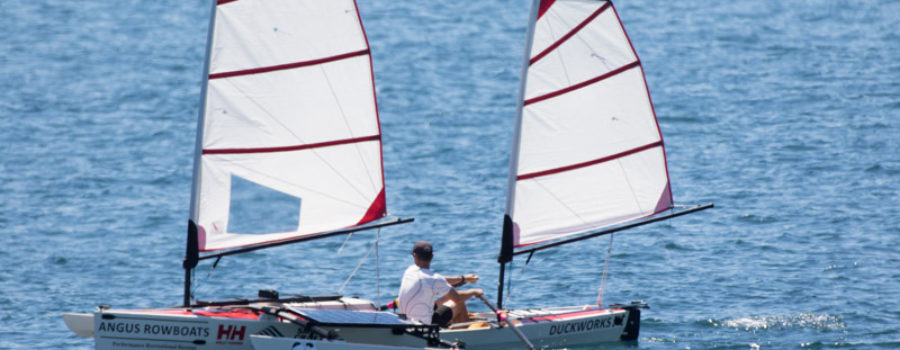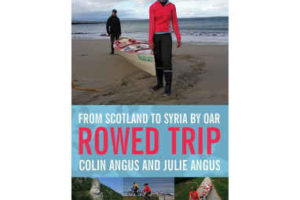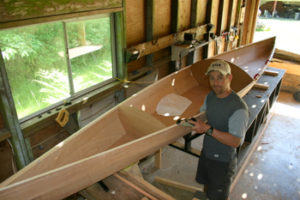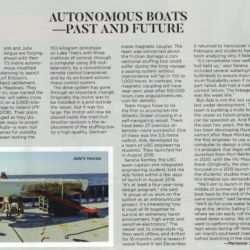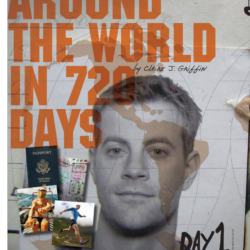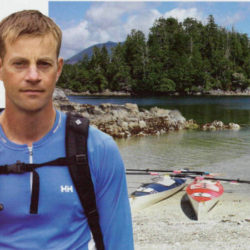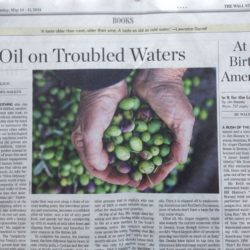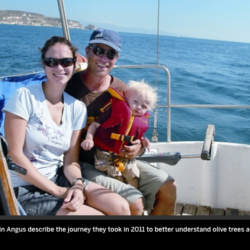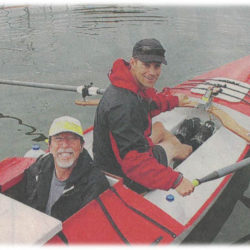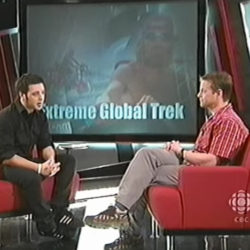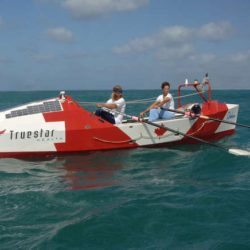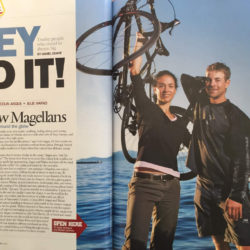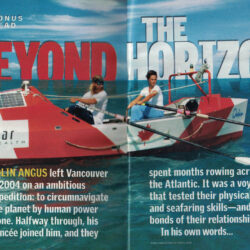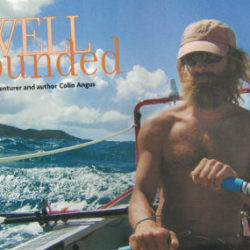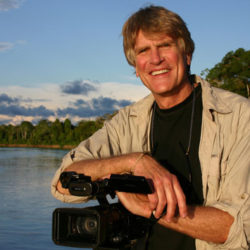With spring just around the corner, Colin’s busy getting ready for the Race to Alaska, which starts June 4th. The inaugural 1200 km race from Port Townsend, Washington to Ketchikan spans the beautiful, wild and chilly waters of BC and Alaska’s inside passage. Any boat that is wind or human powered can enter (no motors allowed) and Colin is building a specialized rowing / sailing vessel for the race. There are already 23 teams registered comprising an eclectic collection of boats including a stand up paddleboard, sailing hydrofoil, a currach (a 6th century leather boat from Ireland), a six-person outrigger canoe, and a multitude of high-performance multihull sailboats. Needless to say the competition is going to be stiff and with a first prize of $10,000 there’s lots of incentive to go fast. Registration is still open so if any of you are looking for a crazy challenge, go for it.
The race will be tracked live so you can follow the drama unfolding. Colin and his friend Steve’s strategy is to go non-stop as fast as they can. They’ll sleep, eat and row, without getting off the boat (apart from fetching water) for the 10 days or however long it takes.
While Colin hopes to finish the race in little over a week, preparation is a half-year process. Some of the tasks include researching the convoluted tidal streams and prevailing weather patterns, training, and planning food and equipment that will be sufficient, while shaving every excess gram possible. The biggest job, however, is creating the boat. We are designing and building a vessel specifically for the race. Its primary mode of propulsion is a sliding seat rowing system, but it also possesses an auxiliary reasonable-performance sailing system.
An element of luck is required for Colin and Steve to place reasonably well in the race. A high-performance production multi-hull sailing vessel such as a Nacra 570 is untouchable by any type of human powered boat, even with a backup sailing rig, if winds are consistent. Fortunately, winds can be fickle along this stretch of coast with frequent calms and light winds.
After many months of building, the boat is a few weeks away from sea-trials, which we’re pretty excited about. There’s no other boat in the world remotely similar to it. As Colin says, it performs pretty well in imagination land, so fingers crossed that translates to reality. The vessel has a sliding seat rowing system, a coffin-sized sleeping cabin, and is comprised of seven sealed compartments for safety. It sports two performance sails in ketch formation, and two outriggers (amas) to provide additional stability when sailing. The entire boat – including outriggers, sailing gear, rowing hardware, etc – should weigh less than 200 lbs. In calm conditions it should move indefinitely by oar at 4 knots (about 7 km/hr), and will go up to 10 knots with wind.
We will be posting regular updates on our Facebook page on the final stages of the build, sea trials, and the race itself. Colin and Steve will also be the reporting boat for the race, providing daily field updates that the race organizers will be posting in accompaniment with the main race tracker page. For any businesses or organizations looking for an innovative means of promotion, don’t hesitate to contact us to talk about sponsorship opportunities.
Olive Odyssey Shortlisted for BC Book Prize
 In other news, my latest book, Olive Odyssey, was shortlisted for a BC Book Prize. It’s a real honour to be a finalist for the Hubert Evans Non-fiction prize along with four others. Just as exciting is getting the chance to meet the other authors at a gala in Vancouver on April 25th where the winners will be announced.
In other news, my latest book, Olive Odyssey, was shortlisted for a BC Book Prize. It’s a real honour to be a finalist for the Hubert Evans Non-fiction prize along with four others. Just as exciting is getting the chance to meet the other authors at a gala in Vancouver on April 25th where the winners will be announced.
Since we competed our journey researching the Mediterranean olive groves nearly four years ago, a lot has changed. Every year variations in weather, pests and the olive tree’s natural cycle result in considerable differences in the quantity and quality of olive oil. But this year stands out as the worst year in over a decade for many producers. Spain and Italy suffered from adverse weather, olive fly infestations, and abnormally large flocks of hungry starlings nearly halving the amount of olive oil produced. Syria’s olive oil industry has been sidelined by the vicious civil war. With three of the world’s top olive producers suffering, it’s especially important to be aware of the olive oil you’re buying and make sure your olive oil isn’t falsely labelled or categorized. Also, expect olive oil to be more expensive, about 20-50% more than last year. This is especially true for French, Spanish, and Italian oils. However, Greece had a fine 2014 harvest and you’ll still find good value in their oils.
Update on Human-Powered Circumnavigations
Just a quick update on another couple of human-powered world circumnavigations we’ve been following. British explorer Sarah Outen, who left London in 2011 has just reached New York City after cycling through a brutal Canadian and American winter. She’s planning on rowing across the Atlantic later this year and hopes to return to London in the fall. Dimitri Keiffer, who began his expedition in 2005, has travelled 18,000 to Uzbekistan. This spring he will resume cycling from Uzbekistan to the western coast of Africa where he’ll begin his row across the Atlantic Ocean.
Whistler’s Multiplicity on April 12th
For adventure enthusiasts on the west coast, you’ll want to check out Multiplicity – an evening event during Whistler’s World Ski & Snowboard Festival that’s a lot like a TEDTalk on adrenalin. I’ll be one of the presenters there alongside Will Gadd (super human ice climber), Suz Graham (only woman ski-BASE jumper on the planet), Tim Emmett (ice climber and BASE jumper extraordinaire) and many other amazing athletes. It starts at 7 pm on April 12th and you get tickets online.

